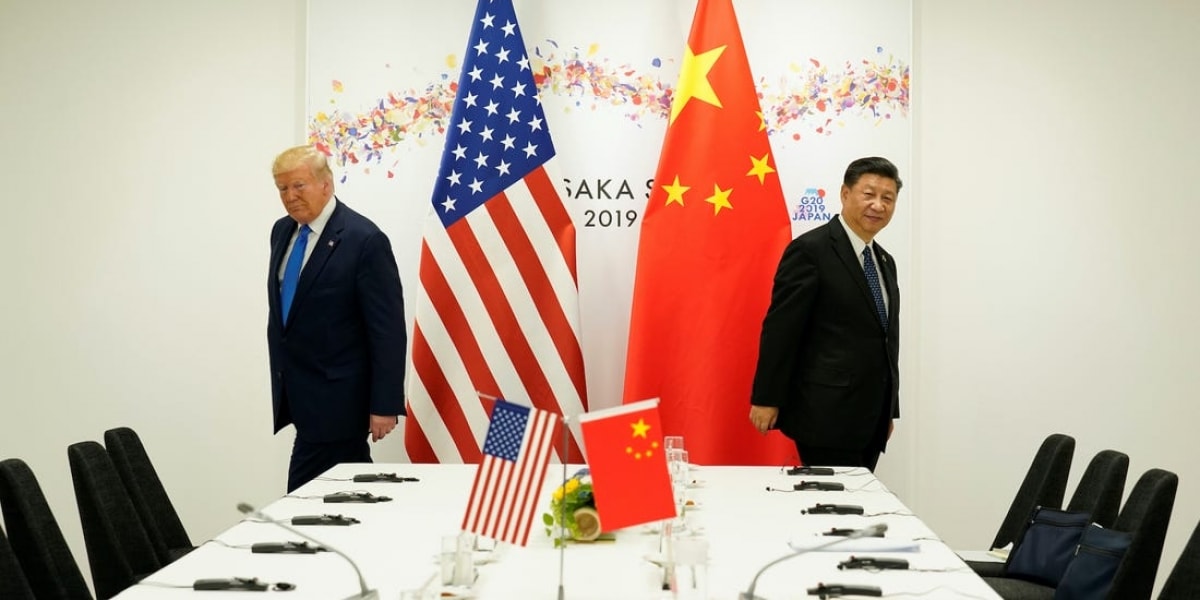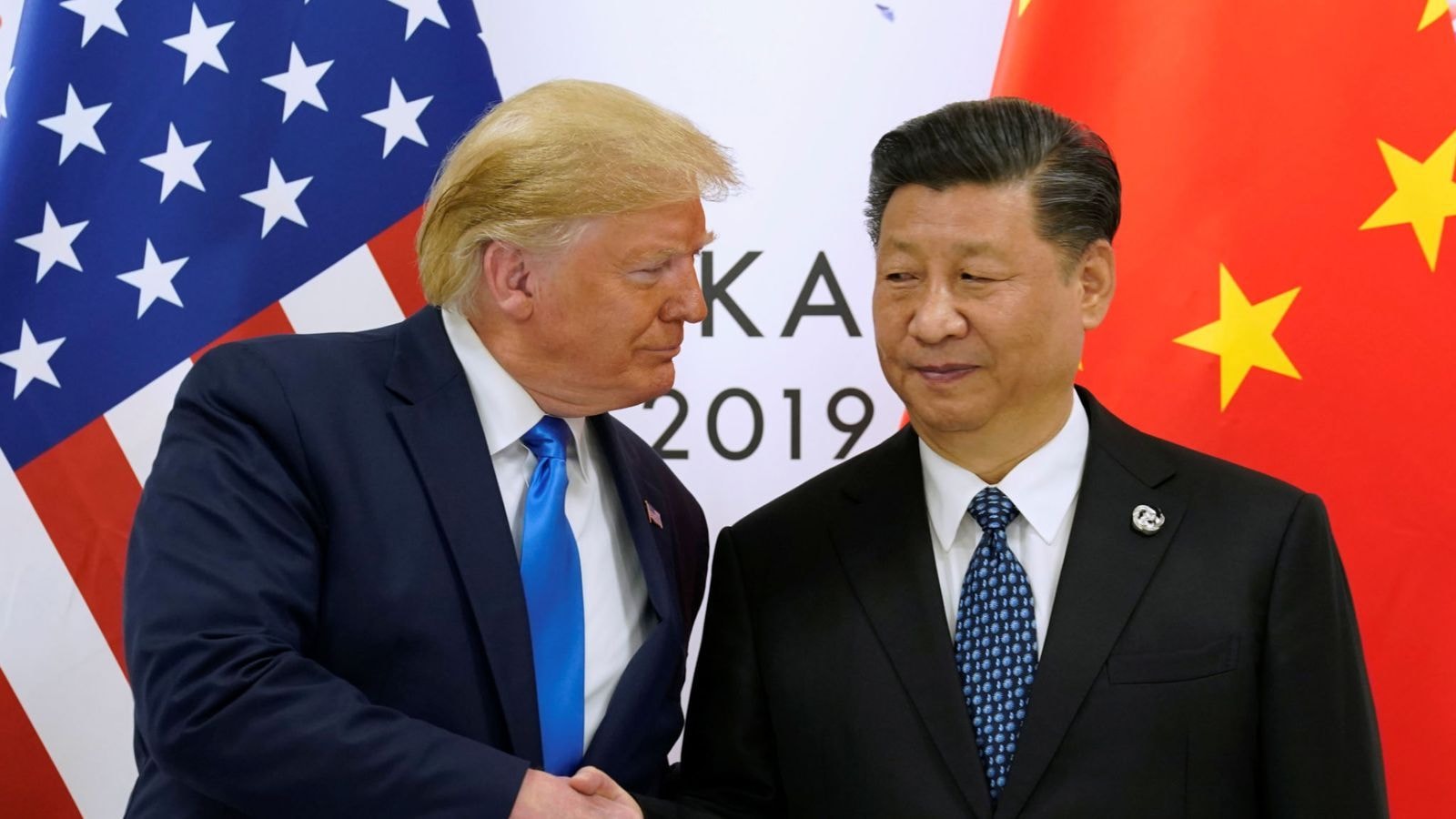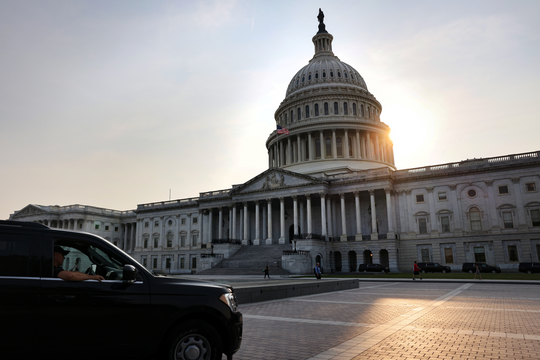America will 'end its dependence on China once and for all'
President Trump says the US will “end its dependence on China once and for all,” but will decoupling between the world’s two largest economies be easy?
In economic relations,America and Chinahave been closely linked for decades. This connection is so close that the two have become each other's largest trading partners since 2014. Currently, in the context of the technology and trade war that shows no signs of stopping, the Covid-19 pandemic continues to develop complicatedly and diplomatic relations are tense, the two largest economies in the world seem to be preparing for "decoupling" but of course, it is not easy.

On September 7, President Trump asserted that: "We will make America the manufacturing superpower of the world, and end our dependence on China once and for all [...] When you talk about 'decoupling,' that's an interesting word. We've lost billions of dollars, and if we didn't do business with them, we wouldn't have lost billions of dollars."
Are the US and China really decoupling?
Bilateral trade between the US and China fell 15% in 2019 after US President Donald Trump began imposing tariffs on Chinese imports and Beijing took retaliatory measures.
Meanwhile, from 2001 to 2018, trade between the two countries increased by an average of 11% annually. Around this time, China joined the World Trade Organization and gradually became the world's factory, shipping a variety of cheap electronic components, toys and garments to the US.
However, the Covid-19 pandemic and new battles over market access have pushed tensions between the two sides further, even to the "brink" of a new "Cold War" as many observers have commented.
Yet, despite growing rifts and intractable differences, the two economic partners and biggest rivals find it difficult to decouple without causing harm or disruption to themselves.
Disagreements in the relationship betweenAmerica and ChinaThe US sees China's ambitions to advance its technology and its involvement in foreign telecommunications networks as a threat to national security. The Trump administration has banned US companies from selling components to Chinese companies, including Huawei, the world leader in 5G wireless technology.
The US has also begun removing Hong Kong’s special trading status after China passed a new national security law in the territory in June. Meanwhile, Chinese companies are starting to withdraw from US stock markets amid new regulations that make it harder for them to list there.
Covid-19 “catalyst”
The Covid-19 pandemic has sparked endless disputes between the US and China as both sides have repeatedly accused each other of the disease. However, the lockdown of China's Hubei province after the Covid-19 outbreak in Wuhan - a technology and automation equipment center - has left many companies around the world whose supply chains "pass" through this city in a situation of lacking important parts.
This has led to bipartisan calls from politicians to bring manufacturing back from China to the US – a stance that President Trump has repeatedly used during the trade war. These demands also reinforce the fact that countries are increasingly realizing how dependent they are on China for protective equipment such as masks.
 |
| US President Donald Trump and Chinese President Xi Jinping during a meeting in 2019. Illustrative photo |
The Covid-19 pandemic is seen as a turning point that could push countries, including the US, to pressure companies to bring production of important medical products such as protective equipment back home.
Are American businesses leaving China?
In fact, not many American companies are leaving China despite the tensions between the two sides. According to a survey conducted in March by the American Chamber of Commerce in China, about 84% of American companies said they had no plans to move production or supply chain operations out of China due to the Covid-19 pandemic.
That is because in addition to China being the world's factory, many products made by American companies in China are also aimed at the market there.
Even as the trade war escalated in 2019, US companies invested $14 billion in new factories and other long-term investments in China, up about 10% from 2018.
Where will the US-China dispute go?
President Trump rode an "America First" agenda to the White House as President Xi Jinping expanded China's military, technological, and economic might. Criticizing China for damaging the U.S. economy and stealing American jobs during the 2016 campaign, President Trump waged a trade war over the next two years with heavy tariffs.
In fact, the goal of monitoring China’s power is one of the few unifying features among America’s deeply divided politicians. Former Vice President Joe Biden, who in 2016 was a Democratic candidate who praised his “friendship” with President Xi Jinping, has now turned his criticism on the Chinese leader. Meanwhile, President Trump has asserted that he will narrow the economic relationship with Beijing “whether that means decoupling or putting a lot of tariffs on China, which I’m doing.”
According to the International Business Times, decoupling the US-China economies could hurt Beijing more than Washington. A study from Bloomberg Economics found that decoupling would reduce China's annual growth rate to 3.5% by 2030 instead of the current forecast of 4.5%. In particular, if the US can convince other important trading partners to decouple from China, including Japan, South Korea, Germany and France, China's growth rate risks falling to 1.6% by 2030.
Abishur Prakash, an expert at the Center for Future Innovation, a strategic consulting firm in Toronto, Canada, said that the center of the US-China decoupling lies on the technology "front".
“The US can decouple from China in two ways: investing in the domestic market, initiatives in the US or convincing allies. For example, the US and Australia are collaborating on ‘China-free’ supply chains for rare earth minerals,” said Prakash.
The analyst added that the decoupling in other areas is also taking place slowly.
"From technology comes geopolitics. India and Japan are also decoupling from China. Ideas like globalization are being dismantled. Now, all countries will put themselves first."
Asked whether decoupling between the US and China is realistic, analyst Prakash said: "In theory, this is possible but in practice it will be much more difficult. However, things are happening faster than expected. For example, Japan is preparing to support its companies moving from China to India. The recent targeting of Tik Tok and Huawei Technologies Group also shows that the West, led by the US, does not want to become dependent on Chinese technology."
"If China starts targeting Western tech companies, banning products or forcing them to comply with new regulations, Beijing will only accelerate the decoupling process. That is probably not in China's economic interest. However, even if China does nothing, the US is still trying to decouple from China by all means. This situation is like a chess game, the US has moved the queen but China has not even moved the pawn"./.








